
Let’s get right to it.
Cue music (something gentle): Still Corners “The Trip“.
In this blog, a mixture of philosophies has been presented. Rather than one way of thinking, an eclectic approach has been taken. A philosophy of enjoyment mixes philosophies and accepts wise insights from anywhere and everywhere, including:
1) Epicureanism: avoid pain and seek natural and necessary pleasures like food, friends, and shelter,
2) Stoicism: seek virtue, use endurance, self-restraint and willpower to withstand problems, and balance animal nature with human reason,
3) Existentialism: as a free and responsible agent, you develop yourself through willpower,
4) Romanticism: subjectivity, beauty, imagination and emotion are important,
5) Empiricism: what we know comes from sense experience,
6) Rationalism: what we know comes from reason,
7) Religion: peaceful happiness comes through love, egolessness and the golden rule,
8) Science: ideas can be tested,
9) Movies, music, books… all forms of beauty making: “Only connect,” E.M. Forster,
10) Nature: “Come forth into the light of things, let nature be your teacher,” W. Wordsworth.
Like a pie made better with a mixture of select ingredients, so is your philosophy of enjoyment.
An example of a delicious pie made with a mixture of select ingredients (see: A Brief History of the Great British Pie).
And in this pie of philosophies, there are two ways of looking at the world. We can look a the world: 1) The Thinking Way, or, 2) The Not-thinking Way.
Please note: We can pivot between looking at the world the thinking way and the not-thinking way.
1) The Thinking Way: The first way of looking at the world is the ordinary way. It’s how we get things done. It is what most people are used to and why most people look distracted. This is the practical, utilitarian way. It is to see things filtered through yourself. It is to look at the world as it affects you and as you think about it. It is to see the world through the filter of your personality. Your mood, your preferences and your conditioned opinions colour everything.
The danger in the Thinking Way of looking at the world is that you can be so inside your head that you don’t see what’s going on and when you’re in your head like that, you can talk yourself into, or out of, almost anything. You can see, but you don’t. It’s like when you park a car and don’t remember driving. You get home and don’t remember the trip. Why is that? It’s because you were absorbed in thinking and you didn’t see the world. You negotiated down roads, around trees and buildings, but you were a million miles away.
2. The Not-thinking Way: The second way of looking is the opposite of the thinking way. It’s not that your brain isn’t working—it is—it’s just that it is not self-directed and busy. The Not-thinking Way is a stilling of one’s mental chatter to the point of experiencing the world directly, unfiltered by thoughts, fears, memories or desires.
And when you look directly at the world with all of your senses, there is no one narrating. There are no mental movies playing. There is simply: here.
You, and, here: One and the same. Aware.
Just awareness.
The odd thing about looking at the world the not-thinking way is that, when thoughts go quiet, for however brief a time, one starts to feel a happy feeling that must be experienced. To try to describe it is as ineffectual as to describe the colour red to someone who can’t see red.
Suffice it to say that you feel a peaceful easy feeling. When mental chatter fades and you feel yourself in a peaceful, lazy, stillness, and that subtle feeling of happiness bubbles-up, keep in mind that this “bubbly feeling of happiness” will last up until you realize you’re feeling it. When you realize you‘re feeling it, awareness of yourself puts you in the Thinking Way again and then it’s like when Wile E. Coyote realizes he’s defying gravity and with this realization, suddenly plummets.
Along with this mixing of philosophies and this pivoting between two ways of looking—the thinking way and the not-thinking way—another thing to remember is that, in life, there are two ways of finding meaning. There is finding: 1) Meaning in Being, and, 2) Meaning in Doing.
1) Meaning in Being: One way of finding meaning is to find meaning in being itself. One finds meaning and living to be the same thing! The meaning of life is to live. Living is the meaning and meaning is found in living. It’s like, if you asked what is the meaning of a flower? Does a flower have a meaning? What’s it mean? What’s its purpose? Is it just biology? It could be said that the meaning or purpose of a flower is to flower. Similarly, it could be said that the meaning or purpose of you is to “you.”
This way of finding meaning in being relates to the not-thinking way of looking and we are advised to live everyday and enjoy it. The counter to this is to find no meaning in life which leads many people to escapism and mind-altering drugs.
Finding Meaning in Being is like going into the field as shown in the golf movie, The Legend of Bagger Vance (2000):
2) Meaning in Doing: The second way of finding meaning is to find meaning in doing, and, if possible, to make a difference in the world before you die. This latter way of finding meaning is illustrated in many movies.
In Fight Club (1999), for example, there’s a scene where a guy (Brad Pitt) puts a gun to another guy’s head and tells this poor guy to follow his dream and become a veterinarian, or else. In this way, a gun is used as a motivation device.
Another example is in the movie Ikiru, or, “To Live” (1952) in which the main character doesn’t realize he hasn’t been living until he gets diagnosed with cancer and then that realization causes his transformation.
In all of this, in what you pay attention to and in the way you look at the world and find meaning in being or doing or not doing, it is a choice. You choose to be who and what you are.
In the novel, In the Days of the Comet (1906) by H. G. Wells, a comet hits Earth causing “nitrogen of the air,” to “change out of itself” which results in: “The great Change has come for evermore, happiness and beauty are our atmosphere, there is peace on earth and good will to all men.”
People instantly become good, rational and wise because of a change in the air, but it doesn’t have to be that way. We don’t have to be hit by a comet to change. A person can be enlightened simply by deciding to be wise and loving like Mr. Williams did in the movie Living (2022).
In Ethics (1677) the philosopher Baruch Spinoza (1632-1677) said that you can experience a personal transformation without a comet simply by becoming more rational. The more you are rational—as in, reasonable, logical, intelligent, wise, judicious, clear-eyed and enlightened—the more your mind coincides with the minds of others who are rational and when our minds coincide, we are united; conversely, the more irrational and unwise you are (think Trump and Putin), the more our minds are divided.
To Spinoza, if you can look upon the natural world as a whole with an attitude of love and reverence, you are freed from your particular identity as a historical person with a particular body and you are not just united with your community, you are united with the whole universe.
Now, enjoy yourself being rational because you never know. C’est la vie!


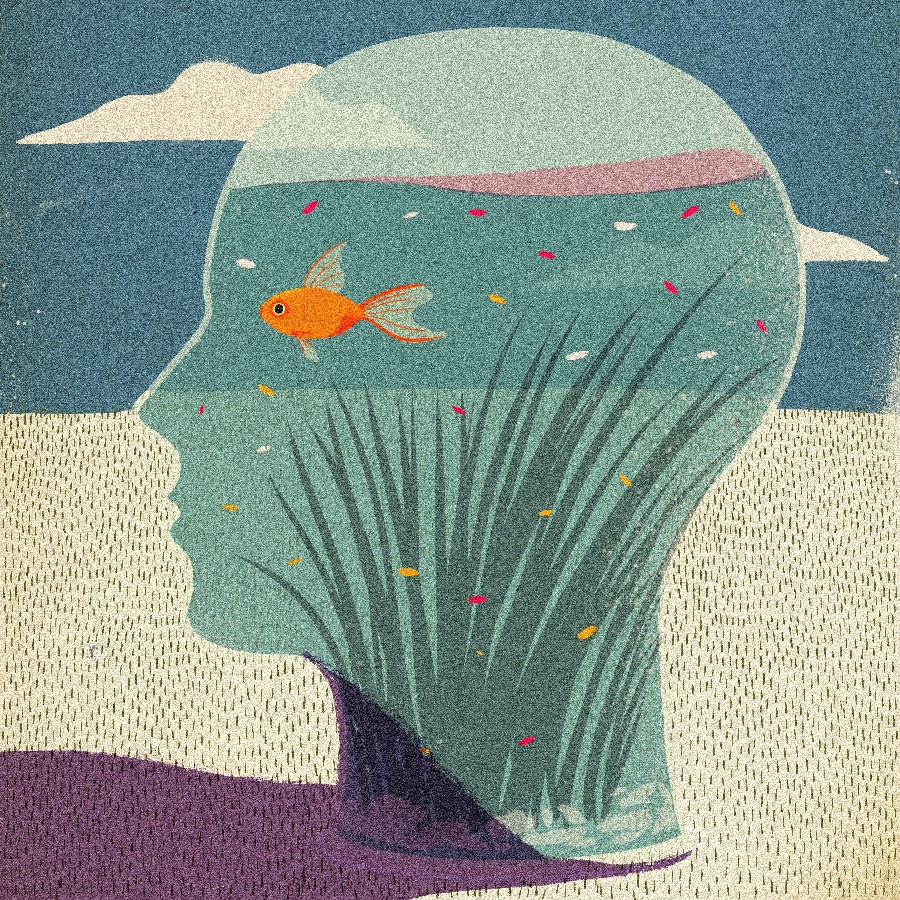
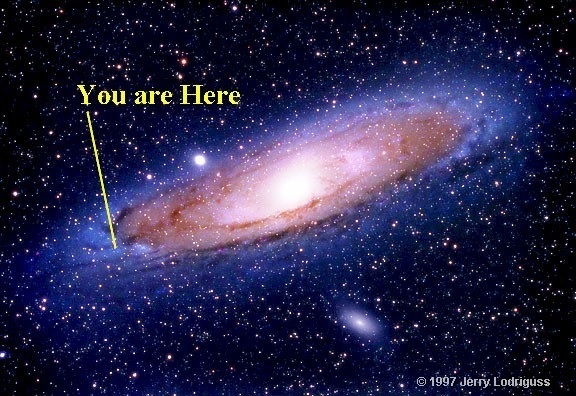
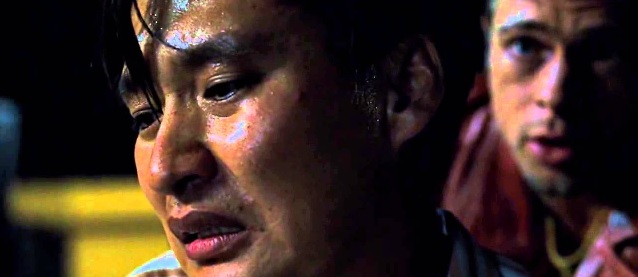





 But if all joy is fleeting, like the clown says, then so is “despair,” “despondency” and “apathy”– possibly. If all emotions—including the “bad” ones—are fleeting, then one need only let them pass fleetingly.
But if all joy is fleeting, like the clown says, then so is “despair,” “despondency” and “apathy”– possibly. If all emotions—including the “bad” ones—are fleeting, then one need only let them pass fleetingly.










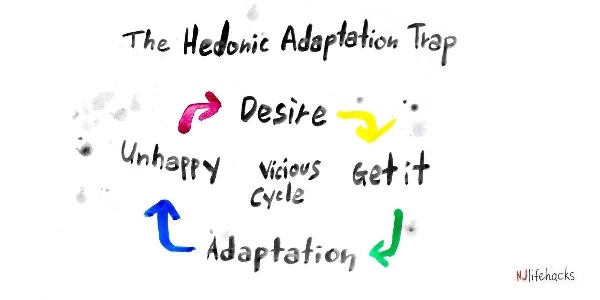
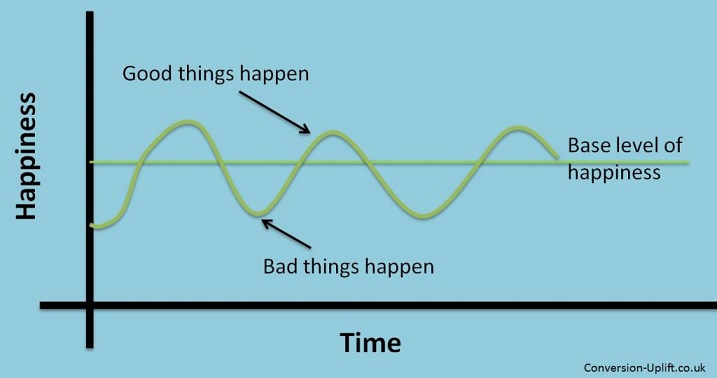









 Rational knowledge is knowing what people, things, practices and pleasures make you happy, but wisdom is knowing that things you enjoy do not actually make you happy; happiness comes from within. Insight is feeling that whether or not you believe something isn’t the right question because the answer is what you know through experience.
Rational knowledge is knowing what people, things, practices and pleasures make you happy, but wisdom is knowing that things you enjoy do not actually make you happy; happiness comes from within. Insight is feeling that whether or not you believe something isn’t the right question because the answer is what you know through experience.


 Time can feel like a Sword of Damocles hanging above your head. Anybody who enjoys wealth, luxury and power lives under threat and anybody who has nothing envies those who have what they want. Gated communities imprison the pampered as poverty imprisons the poor. Questions about whether or not you’re making the most of your time happen when you’d rather be doing something else. In moments of boredom, irritation and/or annoyance, that’s when the present turns into the past like the end of a toilet paper roll running out fast.
Time can feel like a Sword of Damocles hanging above your head. Anybody who enjoys wealth, luxury and power lives under threat and anybody who has nothing envies those who have what they want. Gated communities imprison the pampered as poverty imprisons the poor. Questions about whether or not you’re making the most of your time happen when you’d rather be doing something else. In moments of boredom, irritation and/or annoyance, that’s when the present turns into the past like the end of a toilet paper roll running out fast.
 You’re like a candle burning itself out. Time for you to lighten up. Remember what Mary Poppins said, “In every job that must be done, there is an element of fun. You find the fun and, ‘Snap!’ The jobs a game. And every task you undertake becomes a piece of cake, a lark, a spree, it’s very clear to see” (“
You’re like a candle burning itself out. Time for you to lighten up. Remember what Mary Poppins said, “In every job that must be done, there is an element of fun. You find the fun and, ‘Snap!’ The jobs a game. And every task you undertake becomes a piece of cake, a lark, a spree, it’s very clear to see” (“ When you drop labeling things as “I” and “mine,” you feel the world directly. Disturbing emotions are empty of identify and so is everything else. Look at the one who feels. Look without distraction and anger turns to nothing. Nothing stands alone. Everything is taken together. You see the world through a window where what’s outside is seen through your own reflection. We divide between self and everything else but everything else is one seamless landscape.
When you drop labeling things as “I” and “mine,” you feel the world directly. Disturbing emotions are empty of identify and so is everything else. Look at the one who feels. Look without distraction and anger turns to nothing. Nothing stands alone. Everything is taken together. You see the world through a window where what’s outside is seen through your own reflection. We divide between self and everything else but everything else is one seamless landscape.

 This is the world. The world is as it is. It is not as it isn’t. The world is an interconnected balancing act. Some people say humans came from the hand of God. Some say they came from aliens or from rocks, water and sunshine, but any way you slice it, it’s really quite amazing.
This is the world. The world is as it is. It is not as it isn’t. The world is an interconnected balancing act. Some people say humans came from the hand of God. Some say they came from aliens or from rocks, water and sunshine, but any way you slice it, it’s really quite amazing. Like alternating current (AC) and direct current (dc), the world is positive and negative. Clickety-clack. Clickety-clack. One thing leads to another on the train of days we call life. We hope something incredible will happen—if we’re lucky, if we’re blessed, if a genie grants our wish—but magic doesn’t come from outside.
Like alternating current (AC) and direct current (dc), the world is positive and negative. Clickety-clack. Clickety-clack. One thing leads to another on the train of days we call life. We hope something incredible will happen—if we’re lucky, if we’re blessed, if a genie grants our wish—but magic doesn’t come from outside.


 In this age of entertainment, where people are immersed in computer generated fantasy or escape through drugs and alcohol, it’s interesting to see that people are still singing, “I can’t get no satisfaction. ‘Cause I try and I try and I try,” like Mick Jagger (“
In this age of entertainment, where people are immersed in computer generated fantasy or escape through drugs and alcohol, it’s interesting to see that people are still singing, “I can’t get no satisfaction. ‘Cause I try and I try and I try,” like Mick Jagger (“

 In “
In “



 Feel aware of yourself feeling aware in the world you’re in and like Daniel Boone sing, “Hey, hey, hey, it’s a beautiful day” (“Beautiful Sunday”).
Feel aware of yourself feeling aware in the world you’re in and like Daniel Boone sing, “Hey, hey, hey, it’s a beautiful day” (“Beautiful Sunday”).







 Stage one is like childhood. The focus is on fun. It’s the aesthetic stage. Picture someone self-indulging in enjoyable experiences who gets bored and feels empty and lonely. He buys a car and enjoys it for a while but gets bored so the search for pleasure continues. (It’s a circular trap.)
Stage one is like childhood. The focus is on fun. It’s the aesthetic stage. Picture someone self-indulging in enjoyable experiences who gets bored and feels empty and lonely. He buys a car and enjoys it for a while but gets bored so the search for pleasure continues. (It’s a circular trap.) Ethical people are concerned with actions effecting others because ethical choices evoke a higher set of principles. But the ethical life doesn’t leave room for self-exploration which is a key to stage three – the highest plane of existence (
Ethical people are concerned with actions effecting others because ethical choices evoke a higher set of principles. But the ethical life doesn’t leave room for self-exploration which is a key to stage three – the highest plane of existence ( “Marry and you will regret it! Don’t marry, you will also regret it! Marry, don’t marry, you’ll regret it either way. Laugh at the world’s foolishness, you will regret it. Weep over it, you’ll regret that too. Hang yourself, you’ll regret it. Don’t hang yourself and you’ll regret that too. Whether you hang yourself or don’t hang yourself, you will regret both. This, gentlemen, is the essence of all philosophy.”
“Marry and you will regret it! Don’t marry, you will also regret it! Marry, don’t marry, you’ll regret it either way. Laugh at the world’s foolishness, you will regret it. Weep over it, you’ll regret that too. Hang yourself, you’ll regret it. Don’t hang yourself and you’ll regret that too. Whether you hang yourself or don’t hang yourself, you will regret both. This, gentlemen, is the essence of all philosophy.” Most people, generically speaking, if asked how they should live, might blink and mumble something like, “Oh? I dunno? Be a good person? Take care of family? Work hard? Do something you love? Think happy thoughts? Be a good person? (Oh, did I say that already?)...”
Most people, generically speaking, if asked how they should live, might blink and mumble something like, “Oh? I dunno? Be a good person? Take care of family? Work hard? Do something you love? Think happy thoughts? Be a good person? (Oh, did I say that already?)...” To see clearly and holistically is the root of all wisdom. You can look back on your life and realize that sometimes you were walking in a fog without knowing. The clouds were all around but now, they’re gone.
To see clearly and holistically is the root of all wisdom. You can look back on your life and realize that sometimes you were walking in a fog without knowing. The clouds were all around but now, they’re gone.
 What is the one thing you want? What element is missing? Say the first thing that comes to mind.
What is the one thing you want? What element is missing? Say the first thing that comes to mind. Life is epitomized by two questions:
Life is epitomized by two questions: Do you know what you want?
Do you know what you want? Caprino writes, “Happiness continually escapes them because, first, they don’t really understand exactly what will make them happy. They just don’t know themselves well at all. Secondly, they search outside themselves for happiness – in a job, a husband, a family, a title, a paycheck, a fancy house. As a result, Happiness is constantly out of their control and a perpetual moving target that never stands still long enough for them to grasp.”
Caprino writes, “Happiness continually escapes them because, first, they don’t really understand exactly what will make them happy. They just don’t know themselves well at all. Secondly, they search outside themselves for happiness – in a job, a husband, a family, a title, a paycheck, a fancy house. As a result, Happiness is constantly out of their control and a perpetual moving target that never stands still long enough for them to grasp.”
 Aviator and author, Ann Morrow Lindbergh (1906-2001) spoke of surrendering to one person in conversation, “It is not restful, it is not possible to talk wholeheartedly to more than one person at a time. You can’t really talk with a person unless you surrender to them…“
Aviator and author, Ann Morrow Lindbergh (1906-2001) spoke of surrendering to one person in conversation, “It is not restful, it is not possible to talk wholeheartedly to more than one person at a time. You can’t really talk with a person unless you surrender to them…“ News today is gone tomorrow. Resist what is and happiness eludes. Wishing something different smothers enjoyment. Wanting comes up with a plan and getting is a die cast. It’s like the Zen story of the old man who falls in a river and is taken over a waterfall.
News today is gone tomorrow. Resist what is and happiness eludes. Wishing something different smothers enjoyment. Wanting comes up with a plan and getting is a die cast. It’s like the Zen story of the old man who falls in a river and is taken over a waterfall. Onlookers fear for his life but the old man comes out unharmed. Asked how he survived he says, “I accommodated myself to the water, not the water to me. Without thinking, I allowed myself to be shaped by it. Plunging into the swirl, I came out with the swirl. This is how I survived” (
Onlookers fear for his life but the old man comes out unharmed. Asked how he survived he says, “I accommodated myself to the water, not the water to me. Without thinking, I allowed myself to be shaped by it. Plunging into the swirl, I came out with the swirl. This is how I survived” (

 1) If a person exists, pain is bad.
1) If a person exists, pain is bad.

 Happiness and enjoyment are related but where enjoyment is temporary, happiness is durable. If enjoyment is the journey, happiness is the destination. If tears of happiness come from the heart, tears of enjoyment come from the belly from laughing. If enjoyment comes as a carefree feeling, happiness comes mainly from caring.
Happiness and enjoyment are related but where enjoyment is temporary, happiness is durable. If enjoyment is the journey, happiness is the destination. If tears of happiness come from the heart, tears of enjoyment come from the belly from laughing. If enjoyment comes as a carefree feeling, happiness comes mainly from caring.



